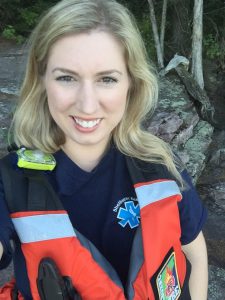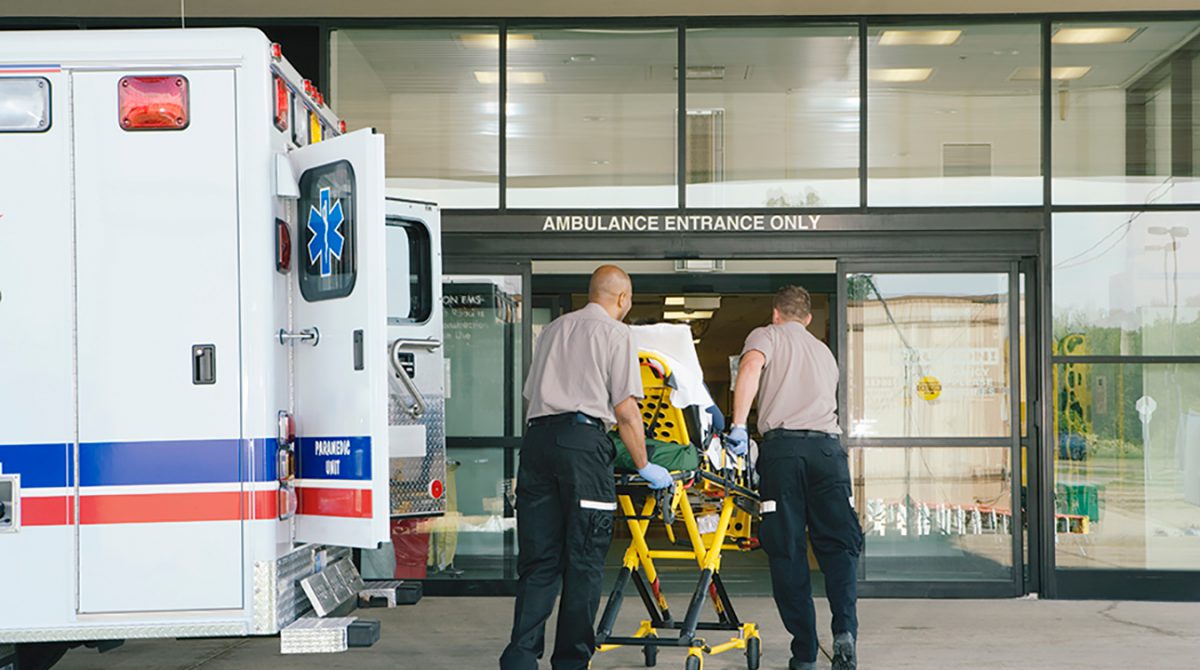When Chelsea Dubie responds to a 911 call or analyzes emergency services data, she applies the skills she learned in UVM’s Certificate of Graduate Study in Public Health.
Dubie is an advanced emergency medical technician and assistant chief of the Georgia Volunteer Fire Department in northwestern Vermont, as well as the emergency medical services data manager for the Vermont Department of Health.
“There are a number of EMS calls that I respond to where I think about it in a broader public health sense,” she says. “For instance, if I respond to a patient that repeatedly calls 911 because they fall down, is not injured, and just needs help getting up. What types of strategies can we, as EMS providers, do to proactively reduce the risk of falls for this individual?”

The UVM alumna, who studied exercise and movement science as an undergraduate and earned her M.Ed. with a concentration in public health and a graduate certificate in public health in 2013, explains that data informs many public health initiatives, particularly in EMS.
“I can analyze Vermont’s EMS data to see if there are medical or injury trends occurring in specific populations and use the data to produce training and education for our providers or to update our state protocols,” says Dubie, who describes herself as ambitious, enthusiastic and adaptable.
Interpreting EMS Data to Address Public Health Issues
At the Vermont Department of Health, Dubie oversees the state’s EMS electronic patient care reporting system. Anytime EMS is activated, whether it’s a 911 emergency call, inter-facility transport or fire standby, providers are required to log into a secure, web-based system called SIREN and document the EMS call.
The documentation includes the patient’s demographic data, medical history, interventions, assessments, and more. The system’s data elements are based off a national standardized data dictionary that is used across the United States to ensure consistency and accuracy. Once an EMS provider submits their documentation following a call, the data is accessible by the Vermont Department of Health and it is transmitted electronically to a national database.
Dubie’s daily job responsibilities involve working on projects that address some of Vermont’s most pressing public health issues based on this EMS data—including the opioid epidemic, injury prevention work and ensuring continuous quality improvement initiatives through data analysis.
Learning Skills in a Public Health College Program
After completing her certificate of graduate study in public health, Dubie joined the Department of Health in 2013 as an infectious disease epidemiologist and later became a public health programs administrator. She became an emergency medical services data manager in 2017.
“My position is the perfect combination of two of my professional and personal interests: epidemiology and emergency medical services,” she says. “One of the aspects I love about public health is that there are so many different avenues you can pursue, like epidemiology, global health, environmental health, public health law, infectious disease, disaster health, and emergency preparedness.
She adds, “A public health degree is a great way to apply a variety of skills to your professional life. Skills like critical thinking, leadership, communication, data analysis, and teamwork.”




